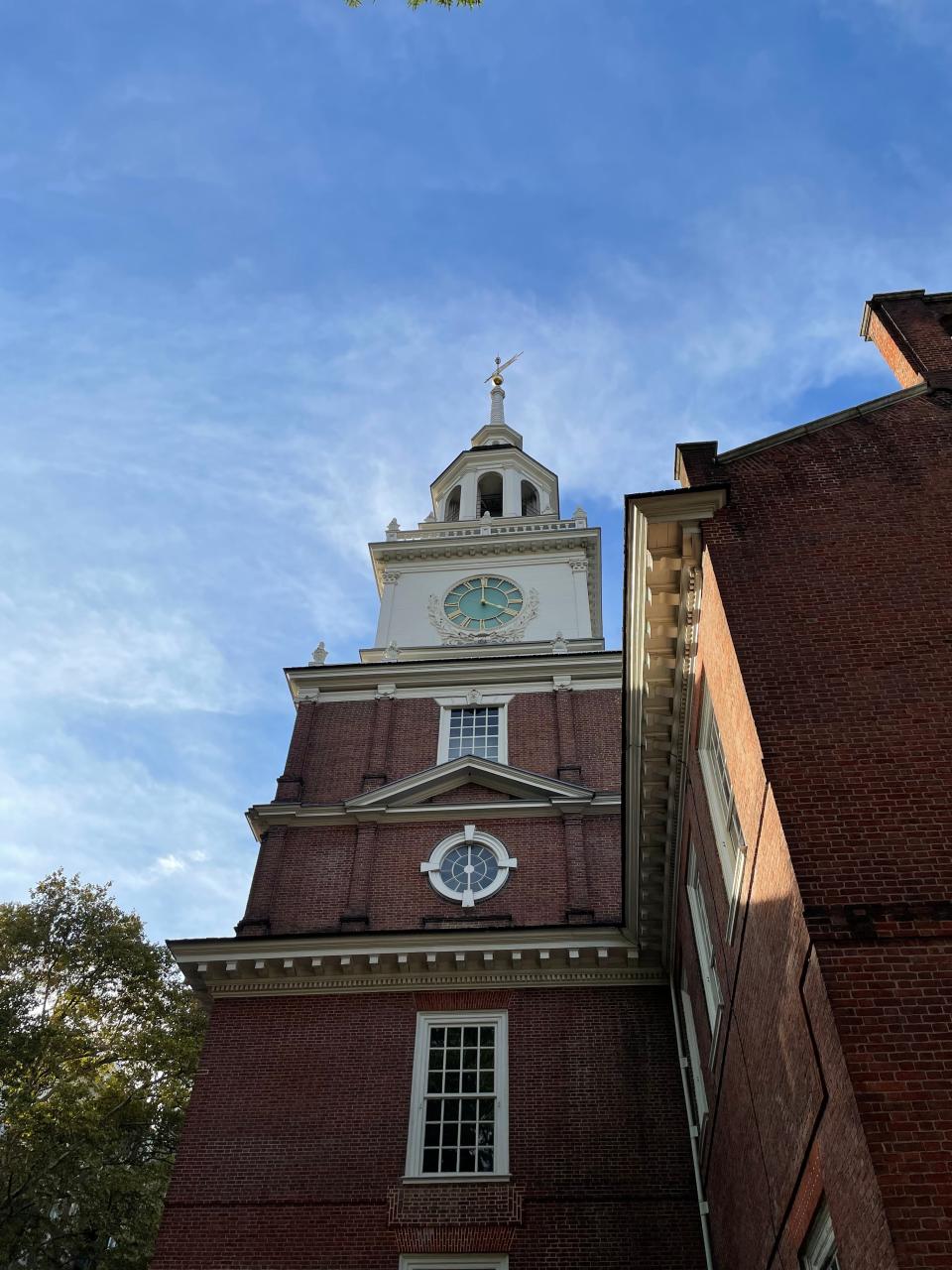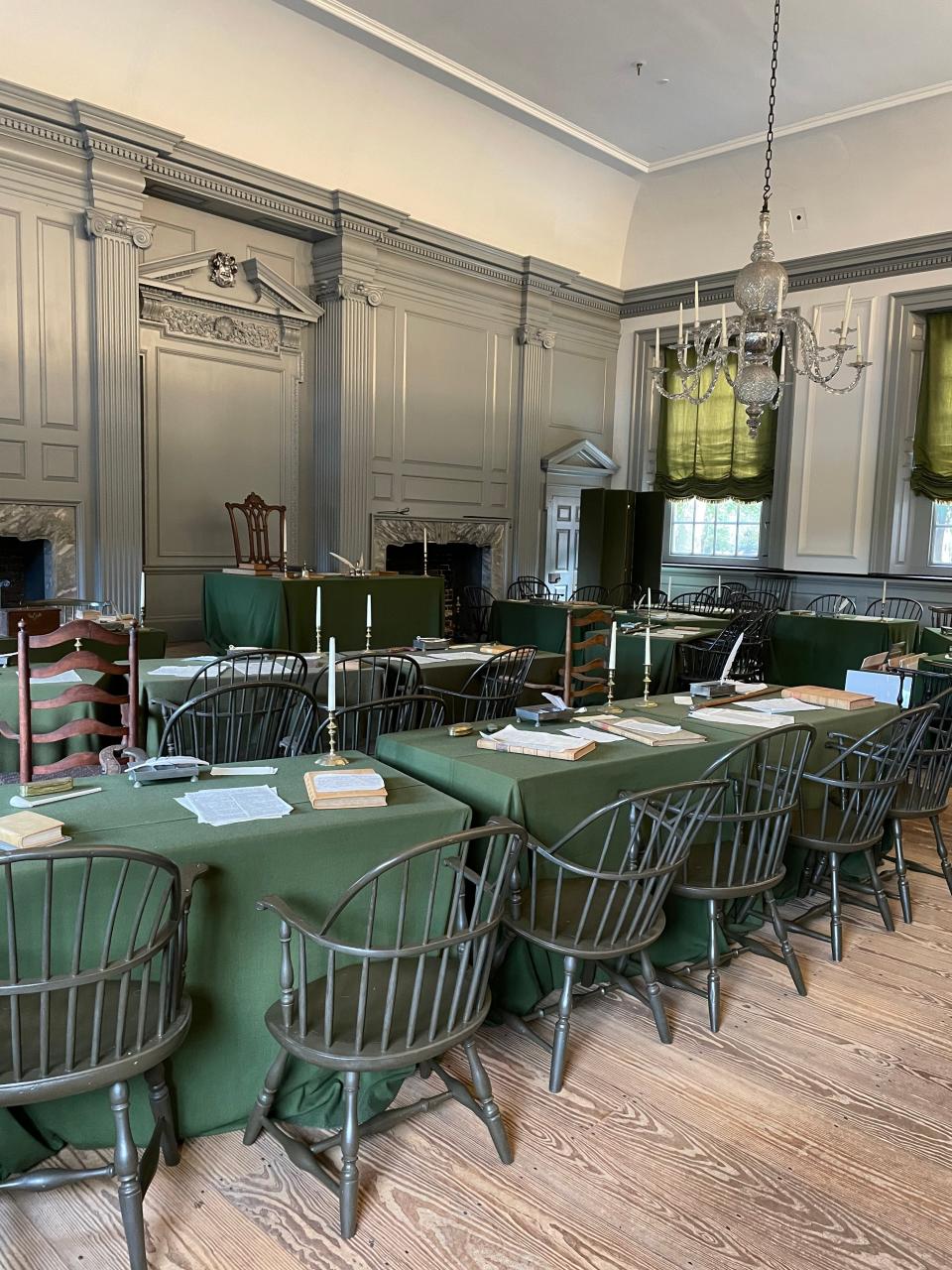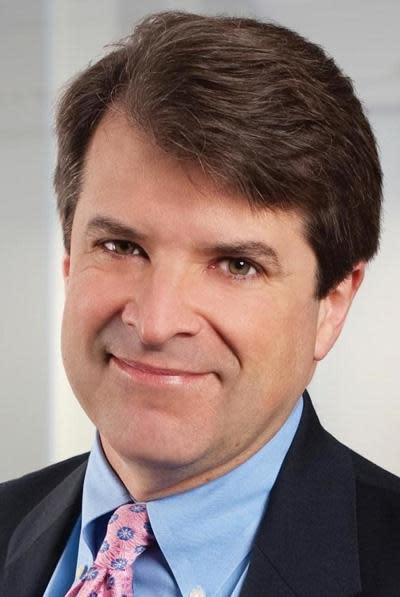Election Day and the Declaration of Independence: Put aside differences for nation's benefit
- Oops!Something went wrong.Please try again later.
- Oops!Something went wrong.Please try again later.
- Oops!Something went wrong.Please try again later.
This is a commentary by Mark Murphy, a longtime contributor to the Savannah Morning News.
The Facebook post was innocuous enough: Just a few pictures from Philadelphia, the
“City of Brotherly Love.” We’ve all seen them: Independence Hall, the Liberty Bell, the Rocky statue, the LOVE sculpture.
About that LOVE sculpture…

One of my good friends saw my photo and commented “LOVE and one of the highest
crime ratings in the country! Democrats running everything into the ground!”
Several choice emojis followed.
Social media is like the mythical Pandora’s Box: Once opened, it cannot be resealed, and all sorts of evil things have flowed from it. About half of all Americans regularly get news from social media. The influence of social media is pervasive, touching every aspect of our lives. We simply cannot get away from it.
Party fouls don't apply to social media?
My mother, who was always a font of common sense, once told me, “When you’re at a party, there are two things you don’t talk about: Politics and religion. Bring those things up and you can ruin the party.” It was wise advice. But Facebook and Twitter have thrown that edict out the window. Politics and religion are always out there these days — and they do indeed ruin the party.
I felt compelled to respond to my friend’s post. You see, my three days in Philadelphia taught me a few things about this country, a nation I dearly love.
As the place where the Declaration of Independence was signed, Philadelphia is the cradle of the American dream. To truly understand the significance of that singular event, one must only look at where the world was 250 years ago and compare it to today.
Mark Murphy: Russia's Putin's saber-rattling puts our children's future at risk
In 1776, when the Declaration was signed, the world was dominated by hereditary monarchies. Great Britain, which had colonized North America, was the most far-flung, its empire stretching from India to North America. Britain’s expansive naval forces even drove exploration along the Pacific Rim, including the South Pacific, China, Australia, and New Zealand. France, Spain and other European powers were ruled similarly.
In the context of the trajectory of human history, what happened in the Pennsylvania State House (now known as Independence Hall) during the summer of 1776 was truly extraordinary.

Led by John Hancock, Thomas Jefferson, John Adams, Alexander Hamilton and longtime Philadelphia resident Ben Franklin, among others, the 56 men who affixed their signatures to the Declaration of Independence asserted that they had the right to exist “as free and independent states,” further stating “We hold these truths to be self-evident, that all men are created equal, that they are endowed by their Creator with certain unalienable rights, that among these are life, liberty, and the pursuit of happiness.”
The signers of the Declaration knew that their actions would be considered an act of treason. Pennsylvania signer Benjamin Rush later said that they all realized that they were signing a document which “was believed by many at that time to be our own death warrants.”
Nevertheless, these men persevered. In so doing, they changed the world, forever. They created the first nation ifounded based on an idea, rather than the limitations imposed by geography, culture, religion or ethnicity.
Recently: Mark Murphy: To find myself, I climbed to the mountaintop again, 50 years later
More: Another Bulldog dynasty? Why today's Georgia team is reminiscent of Walker-fueled 1980 run
Remarkable actions yield remarkable results
America’s core values are clearly stated in the Declaration: That all men are created equal. That they have certain “unalienable rights” as human beings. And that governments derive their power from the consent of those they govern.
As I stood in Independence Hall, I was moved by the sheer gravity of the place. It struck me that the signers set aside regional differences and personal politics to craft a new kind of nation predicated upon the novel ideas of individual freedom and self-determination.
Today, Americans find our nation more fragmented than it has been in a long time. A lot of that is the fault of social media, which tends to emphasize the tribal nature of humanity, dividing us into warring factions unwilling to compromise with one another. George Washington, in his 1796 Farewell Address, warned of the dangers of emphasizing party loyalty over loyalty to country, stating that this would enable the rise of “cunning, ambitious, and unprincipled men” who would “usurp for themselves the reins of government; destroying afterwards the very engines which have lifted them to unjust dominion”
American exceptionalism is real. It has driven our nation to unprecedented heights, molding the United States into the greatest country in history. But democracy is a fragile thing, one which can easily be abrogated, adulterated, and lost. Partisanship at the expense of our overarching goals as a nation only benefits our enemies. And those enemies are not our fellow Americans, neither Democrats nor Republicans.

Our real enemies are those who would rejoice if America fails from within: Russia, China, Iran and North Korea chief among them. We should always keep that in mind, whether it is in the voting booth, in casual conversation or on social media. The future of our children and our grandchildren may well depend on it.
That’s what I learned from three days in Philadelphia.
This article originally appeared on Savannah Morning News: Declaration signers in Philadelphia chose unity over disharmony

